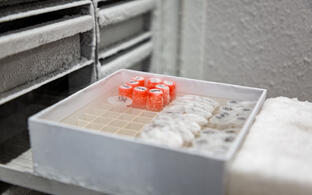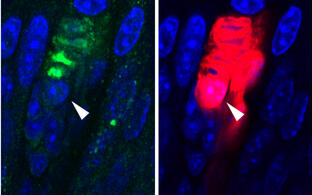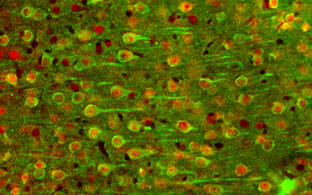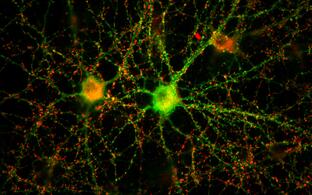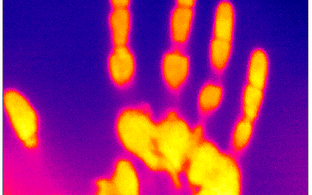
Poulet Lab
Neural Circuits and Behaviour
Team
Research
Thermal processing and perception
The thermal system is fundamental to perception and underpins our sensation of temperature and can evoke rapid behavioral responses. Prior work has examined primary sensory afferent neurons and their thermal ion channels, whereas the cellular encoding of innocuous temperature in the central nervous system has remained unclear. In recent years we have mapped the circuits of the thermal system and their impact on thermal perception. We have developed a two-pathway model whereby thermal information is routed from primary afferent neurons to the spinal cord and then to either the primary somatosensory cortex via anterior structures in the thalamus, or to the primary cortical representation of temperature in the posterior insular cortex via posterior thalamic nuclei including the posterior triangular nucleus.
Thermotactile integration
A fundamental function of the brain is to combine or ‘bind’ different modalities of sensory input to generate a unified percept, like a cool and smooth bottle. Temperature and touch are constantly integrated during object touch and can form different sensory percepts, including our sense of wetness. We have identified central neural circuits in the thermal system that are sensitive to both temperature and touch and aim to investigate these regions to understand the neural mechanisms of thermotactile binding.
Body-brain interaction
Our core physiological state (the ‘body’) has a surprisingly powerful influence on sensory perception in processing and higher circuits (the ‘brain’) and drives behaviors that meet our physiological needs. Likewise, our perceptual system is required to shape behavior to ensure survival. How is the tight coupling between body state and our perception of the external world achieved in the brain, whilst maintaining accurate sensory representations? Identifying the basis behind body-brain interactions is a key challenge in neuroscience. We address this in thermal system and hypothesize that the insular cortex acts as a hub integrating signals about our core body temperature with external thermal information to drive appropriate behaviors and perception.
Publications
News
Funding
Deutsch Forschungsgemeinschaft (DFG)
European Research Council (ERC)
Helmholtz Association














